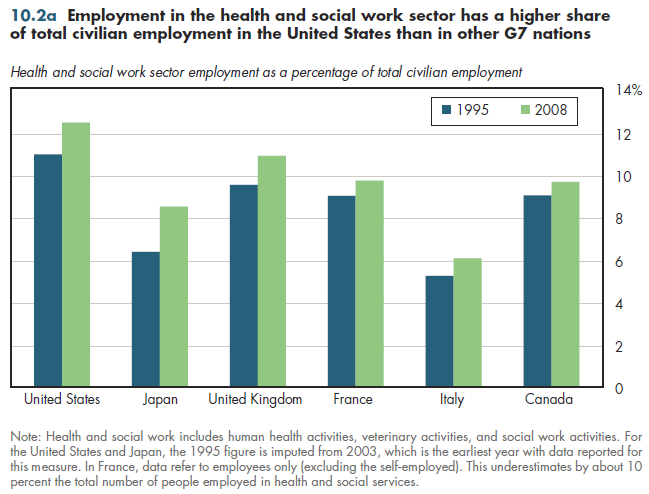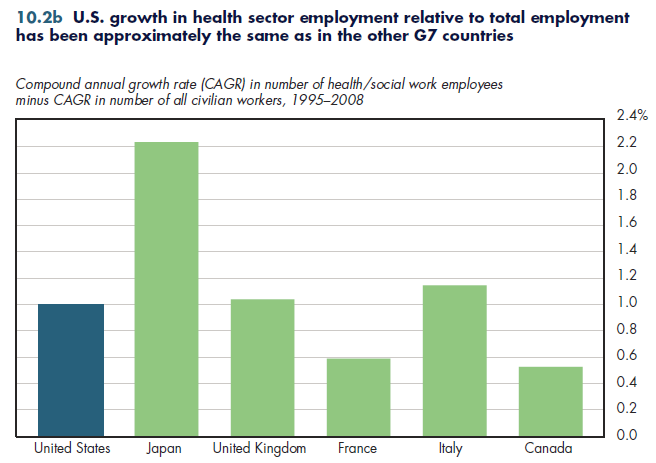Download PowerPoint versions of both figures.
10.2 US Share of Health Sector in Employment Is High among Industrialized Countries
Summary: The health sector as a share of total employment is higher in the United states than in other industrialized countries. The industry's growth relative to all employment appears comparable with other G7 nations in recent years.
The share of civilian employment in the health and social work sector is higher in the United States than in other nations in the G7 (figure 10.2a). Nevertheless, compared with 1995, all these major competitors experienced, along with the United States, an increase in health sector employment relative to all civilian workers. It is worth noting that in the three OECD countries most comparable to the United States in terms of standardized per capita health expenditures (Norway, Switzerland, and the Nether- lands), health employment exceeds 11.5 percent of total employment; in Norway it equals 20 percent. The U.S. level is assuredly not the highest in the world.

These data have three limitations. First, they combine health sector workers with veterinary workers and those doing other types of social work services. In the United States, "social assistance" makes up approximately 15 percent of the total for health services and social assistance. This is a catch-all category for various services: emergency and other relief, vocational rehabilitation, child day care, and other individual or family services. Unfortunately, data do not show whether this 15 percent share is similar in other G7 countries (a higher share would make the differences between the United States and other nations even more than shown). Second, reporting gaps for the United States, Japan, and France preclude an exact comparison of numbers, especially for 1995 (figure 10.2a note). Finally, the data shown are self-reported estimates from population surveys. In the United States, such self-reporting for health care is one-seventh higher than are more precise counts obtained through detailed employer surveys.
These limitations inhibit our ability to get precise cross-sectional comparisons between the United States and other nations. Nevertheless, it is possible to compare how employment in this health sector and social work aggregate grew relative to civilian employment overall in each country. In the United States, health sector and social work employment grew 1 percent a year faster than did civilian employment (figure 10.2b). This was much slower than in Japan and the same as the experience in the UK and Italy, but the U.S. increase was approximately double the added growth rate in health workers in France and Canada, relative to the whole work force.

Downloads
References
- Author's calculations.
- Organisation for Economic Co-operation and Development.
Content actions
Give feedback:
Add module to:
Reuse / Edit:
Twin Cities Campus:
- © 2012 Regents of the University of Minnesota. All rights reserved.
- The University of Minnesota is an equal opportunity educator and employer. Privacy
- Last modified on Sep 27, 2013 1:18 pm -0500









